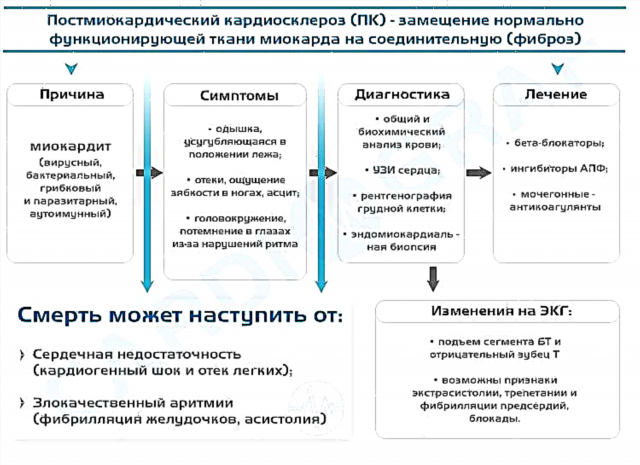Infections that were received by a child at the stage of intrauterine development make a rather significant contribution to the statistics of disability, abnormal development and mortality of children. In particular, laryngitis during pregnancy often becomes the cause of the development of severe pathologies and defects in a child. The disease is provoked by pathogenic viruses that enter the body through the transplacental route.
 The fact is that the risk of developing infectious diseases in women in the first few weeks of gestation increases significantly. This is due to a decrease in the body's resistance to the negative effects of opportunistic microbes and viruses. Decreased immunity is a natural process that prevents embryo rejection in early pregnancy. It is for this reason that the body of the expectant mother is the most vulnerable to infectious lesions. In addition, hormonal changes are catalysts for pathological changes in a woman's condition, which can lead to the development of respiratory diseases and, accordingly, complications.
The fact is that the risk of developing infectious diseases in women in the first few weeks of gestation increases significantly. This is due to a decrease in the body's resistance to the negative effects of opportunistic microbes and viruses. Decreased immunity is a natural process that prevents embryo rejection in early pregnancy. It is for this reason that the body of the expectant mother is the most vulnerable to infectious lesions. In addition, hormonal changes are catalysts for pathological changes in a woman's condition, which can lead to the development of respiratory diseases and, accordingly, complications.
Critical periods
According to the results of numerous studies, the body's immune defense decreases sharply with the onset of pregnancy. Although this process is natural, a decrease in reactivity greatly increases the risk of developing respiratory diseases. Why it happens?
The woman's body, the unformed placenta and the embryo release special substances into the bloodstream that suppress the immune response. Due to this, the body “does not notice” the presence of foreign tissues in the body, i.e. fetus, therefore, rejection and miscarriage in the early stages of gestation does not occur. However, complex immunological changes also entail negative consequences.
Decreased reactivity exposes the body to infection with pathogenic viruses, fungi, protozoa and microbes. That is why, throughout pregnancy, women quite often get sick with ARVI, flu, laryngitis, etc. Doctors identify several critical periods in which the body is most susceptible to infection:
- 6-8 weeks of pregnancy - the body adapts to hormonal changes and changes in the immunological status; therefore, many expectant mothers develop colds during this period;
- 20-28 weeks of pregnancy - due to the active formation of the fetus, the reserve forces of the body of the expectant mother are depleted; many women are diagnosed with iron deficiency anemia and hypovitaminosis, which only increase the risk of developing respiratory disease.
Laryngitis during pregnancy develops in about 10% of expectant mothers against the background of other diseases. Very often, the common cold or flu precedes the inflammation of the larynx. If inflammation and manifestations of the disease are not stopped in time, this can subsequently lead to abnormal development of the fetus.
Causative agents of intrauterine infections
Laryngitis is called damage to the vocal cords and laryngeal mucosa by pathogenic microbes or viruses. It is viruses that pose the greatest danger to the fetus, since they quite easily overcome the placental barrier and penetrate into the body of the unborn child. As a rule, laryngitis in pregnant women is triggered by the influenza virus, adenoviruses or rhinoviruses.
It should be understood that laryngitis in 97% of cases develops against the background of influenza and ARVI. At first glance, it may seem that diseases are harmless, but it is they that provoke complications. Due to a decrease in the body's immune defenses, the cold rather quickly flows into laryngitis, laryngotracheitis, tracheobronchitis, etc. These diseases pose a threat not only to the woman, but also to the fetus.
Important! Viral infections in early gestation can cause abnormal development of the central nervous system in an unborn child.
Possible complications
Why is laryngitis dangerous during pregnancy? It should be noted that even viral infections do not always cause formidable complications and negative consequences for the intrauterine development of the fetus. The difficulty lies in the fact that a limited number of drugs can be used to treat pregnant women, since most of them have a toxic effect. That is why it is not always possible to stop the infection in time.
Signs of laryngitis in the expectant mother and probable complications for the fetus are largely determined by the gestation period:
| Gestation period | Clinical manifestations | Consequences for the fetus |
|---|---|---|
| 1st trimester | sore throat, paroxysmal cough, low temperature | pathological formation of the neural tube, spontaneous miscarriage |
| from 12 to 28 weeks | spastic cough, high fever, signs of intoxication (nausea, lack of appetite, headaches) | abnormal kidney formation and / or delayed development of internal organs |
| 3rd trimester | shortness of breath, cyanosis of the lips, "barking" cough, asthma attacks | pathological development of the cardiovascular and respiratory system |
Delayed complications are uncommon in newborns after undergoing laryngitis during pregnancy. As a rule, they appear 6-7 days after birth:
- lethargy;
- drowsiness;
- pallor of the skin;
- constant regurgitation;
- tearfulness;
- restlessness.
 With an untimely examination and the appointment of an appropriate course of treatment, symptoms of respiratory failure may appear.
With an untimely examination and the appointment of an appropriate course of treatment, symptoms of respiratory failure may appear.
According to practical observations, congenital infection most often develops in two scenarios: sluggish and acute. Acute infections lead to the development of shock and sepsis. As a rule, the symptoms of a child's ill health appear almost immediately after birth. Kids are inactive, eat poorly and sleep all the time. However, in most cases, diseases that were obtained during intrauterine development are asymptomatic. Children who are sick from birth often suffer from hearing impairments, mental retardation, etc.
Consequences for the fetus
At what stage of pregnancy does laryngitis pose the greatest threat to the unborn child?
Laryngitis in pregnancy is a risk factor at any stage of pregnancy.
The most formidable consequences of the development of respiratory disease in an expectant mother include:
- spontaneous miscarriage;
- stillbirth;
- abnormal development of the central nervous system;
- fetal pneumonia;
- congenital immunodeficiency;
- inflammation of the lining of the brain;
- fetal hypoxia.

The greatest danger is not the infection itself, but the symptoms of intoxication. It is the poisoning of the body with the products of the vital activity of viruses and bacteria that leads to the abnormal development of the fetus. Therefore, the disease should never be ignored. Fortunately, laryngitis in pregnant women proceeds with obvious clinical manifestations, so the disease can be diagnosed on time.
With the timely completion of the course of treatment, inflammation in the larynx and other parts of the ENT organs can be stopped within a week.
Laryngitis due to influenza
In most cases, laryngitis in expectant mothers develops against the background of influenza. According to experts, the development of the fetus is negatively affected not only by the influenza virus itself, but by the expressed intoxication of the body. Moreover, severe tissue edema disrupts the uteroplacental blood circulation, which can subsequently lead to oxygen starvation of the fetus and, accordingly, the development of pathologies.
Untimely treatment of influenza conditions leads to hemorrhages in the ovum, and this in some cases entails spontaneous miscarriage in the 1st trimester or premature birth in late pregnancy. According to statistics from the world literature, pregnant women are more susceptible to developing influenza than other people. Therefore, during periods of exacerbation of seasonal diseases, expectant mothers are not recommended to visit public places in which the risk of infection with the influenza virus increases 3-4 times.
Effects of cough and high fever
Can a cough with laryngitis harm an unborn child? A spastic cough overstrains the diaphragm and the anterior abdominal wall. This can cause an increase in the tone of the uterus and, as a result, premature birth. In addition, prolonged attacks lead to respiratory failure and oxygen deficiency in the body, which leads to temporary fetal hypoxia.
According to experts, the cough itself is not as harmful to the fetus as the mother's worries about this.
During times of stress, excess cortisol is produced in the body. This hormone easily crosses the placental barrier and is absorbed into the tissues of the unborn child. It is he who most often becomes the cause of abnormalities in the development of the fetus in the 1st and 2nd trimester of pregnancy.
Due to inflammation of the larynx with laryngitis, the temperature rises slightly, usually up to 37-38 ° C. But even such minor changes in temperature can negatively affect the intrauterine development of the baby. In the first weeks of pregnancy, the formation of the nervous, cardiovascular and digestive systems takes place. Fever can lead to impaired protein synthesis in the body, leading to abnormal development of the fetus. The most common fetal malformations are abnormalities in the palate, upper lip and lower jaw.
In order to prevent the development of defects in the unborn baby, any respiratory diseases must be stopped in the bud. If you have a cough, nasal congestion, or fever, seek medical attention. Timely elimination of pathological symptoms and pathogenic flora will help prevent abnormalities in the development of the child.




